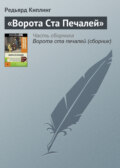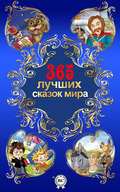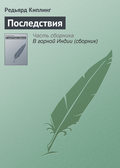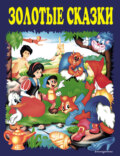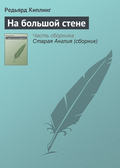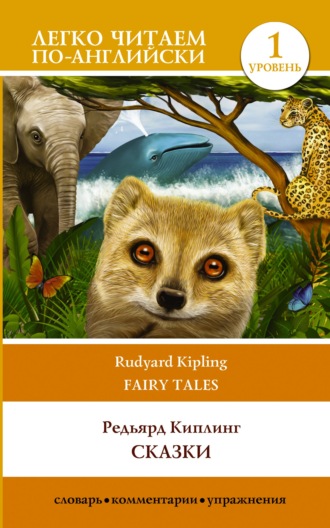
Редьярд Джозеф Киплинг
Сказки / Fairy Tales. Уровень 1
How the Leopard got his spots
Once upon a time, the Leopard lived in a place called the High Veldt. There were sand and sandy-coloured rock and tufts of sandy-yellowish grass in that place. The Giraffe and the Zebra and the Eland and the Koodoo and the Hartebeest lived there. They were exclusively sandy-yellow-brownish all over; but the Leopard was the exclusivest sandiest-yellowish-brownest of them all. He was the greyish-yellowish catty-shaped beast in that place. This was very bad for the Giraffe and the Zebra and the rest of them, because he liked to lie down by a yellowish-greyish-brownish stone or clump of grass, and when the Giraffe or the Zebra or the Eland or the Koodoo or the Bush-Buck or the Bonte-Buck came by he jumped and caught them. He did so! And, also, there was an Ethiopian with bows and arrows (a exclusively greyish-brownish-yellowish man), who lived on the High Veldt with the Leopard. The two hunted together – the Ethiopian with his bows and arrows, and the Leopard exclusively with his teeth and claws – till the Giraffe and the Eland and the Koodoo and the Quagga and all the rest of them didn’t know which way to jump. They didn’t indeed!
After a long time, the animals learned to avoid anything that looked like a Leopard or an Ethiopian. And bit by bit[13] (the Giraffe began it, because his legs were the longest) they went away from the High Veldt. They scuttled for days and days and days till they came to a great forest, exclusively full of trees and bushes and stripy, speckly shadows, and there they hid.
After another long time, the Giraffe grew blotchy, and the Zebra grew stripy, and the Eland and the Koodoo grew darker, with little wavy grey lines on their backs like bark on a tree trunk. Though you could hear them and smell them, you could very seldom see them: only when you knew precisely where to look. They had a beautiful time in that forest, while the Leopard and the Ethiopian were puzzled. Where are their breakfasts and their dinners? At last the Leopard and the Ethiopian were so hungry that they ate rats and beetles and rock-rabbits. And they both had a terrible stomach-ache.
Then they met a Baboon, who is the wisest animal in all South Africa.
The Leopard asked the Baboon (and it was a very hot day),
‘Where are all the animals?’
And the Baboon winked. He knew.
The Ethiopian asked the Baboon,
‘Can you tell me the present habitat of the animals?’
And the Baboon winked. He knew.
Then the Baboon said,
‘The animals went into other place; and my advice to you, Leopard, is to go there as soon as you can.’
And the Ethiopian said,
‘That is all very fine, but I wish to know where they are.’
Then the Baboon said,
‘The animals changed their place, because it was high time for a change; and my advice to you, Ethiopian, is to change as soon as you can.’
That puzzled the Leopard and the Ethiopian. They went away and after many days they saw a great, high, tall forest full of tree trunks and shadows.
‘What is this,’ said the Leopard, ‘that is so exclusively dark, and yet so full of little pieces of light?’
‘I don’t know,’ said the Ethiopian, ‘but I can smell Giraffe, and I can hear Giraffe, but I can’t see Giraffe.’
‘That’s curious,’ said the Leopard. ‘I can smell Zebra, and I can hear Zebra, but I can’t see Zebra.’
‘Wait a bit,’ said the Ethiopian. ‘We saw them a long time ago. Perhaps we don’t remember anymore what they are like.’
‘Nonsense!’ said the Leopard. ‘I remember them perfectly on the High Veldt, especially their marrow-bones. Giraffe is about seventeen feet high, of a exclusively fulvous golden-yellow from head to heel; and Zebra is about four and a half feet high, of a exclusively grey-fawn colour from head to heel.’
‘Umm,’ said the Ethiopian, and looked into the speckly-spickly shadows of the forest. ‘Then they will soon appear in this dark place like ripe bananas.’
But they didn’t. The Leopard and the Ethiopian hunted all day; and though they could smell the animals and hear the animals, they never saw one of them.
‘Let us wait till dark,’ said the Leopard, ‘This daylight hunting is a perfect scandal.’
So they waited till dark, and then the Leopard heard something. It breathed sniffily in the starlight, and he jumped at the noise, and it smelt like Zebra, and it felt like Zebra, and when he knocked it down it fell like Zebra, but he couldn’t see it. So he said,
‘Be quiet, an animal without any form. I will sit on your head till morning, because there is something about you that I don’t understand.’
Presently he heard a grunt and a crash and a scramble, and the Ethiopian called out,
‘I have an animal that I can’t see. It smells like Giraffe, and it kicks like Giraffe, but it hasn’t any form.’
‘Don’t you trust it,’ said the Leopard. ‘Sit on its head till the morning – same as me. They haven’t any form – any of them.’
So they sat down on them hard till bright morning-time, and then Leopard said,
‘What have you, Brother?’
The Ethiopian scratched his head and said,
‘It is orange-tawny from head to heel, and it must be Giraffe; but it is covered all over with chestnut blotches. And what have you, Brother?’
And the Leopard scratched his head and said,
‘It is greyish-fawn, and it must be Zebra; but it is covered all over with black and purple stripes. Zebra, what’s wrong with you? When you were on the High Veldt, you looked different. And now you haven’t any form.’
‘Yes,’ said the Zebra, ‘but this isn’t the High Veldt. Can’t you see?’
‘I can now,’ said the Leopard. ‘But I couldn’t see yesterday. What happened?’
‘Come,’ said the Zebra, ‘and we will show you.’
The Zebra and the Giraffe got up; and Zebra moved away to some little thorn-bushes where the sunlight fell all stripy[14], and Giraffe moved off to some tallish trees where the shadows fell all blotchy[15].
‘Now watch,’ said the Zebra and the Giraffe. ‘One – two – three! And where’s your breakfast?’
Leopard stared, and Ethiopian stared, but all they could see were stripy shadows and blotched shadows in the forest. Not a sign of Zebra and Giraffe! They just walked off and hid themselves in the shadowy forest.
‘Hi! Hi!’ said the Ethiopian. ‘What a trick! We must learn it. Take a lesson by it, Leopard.’
‘Ho! Ho!’ said the Leopard. ‘Be a good student yourself!’
‘Well, if you tease each other, we won’t catch dinner,’ said the Ethiopian. ‘I want to take the Baboon’s advice. I must change. I have nothing to change except my skin. So I will change that.’
‘What to?’ said the Leopard, tremendously excited.
‘To a nice blackish-brownish colour, with a little purple in it. It will help me a lot. I will be able to hide myself in hollows and behind trees.’
So he changed his skin then and there, and the Leopard was more excited than ever.
‘But what about me?’ said the Leopard.
‘Take the Baboon’s advice too. Just change. Change your skin. Do you want to get spots on your skin?’
‘What’s the use of that?’ said the Leopard.
‘Think of Giraffe,’ said the Ethiopian. ‘Or if you prefer stripes, think of Zebra. They like their spots and stripes.’
‘Umm, I don’t want to look like Zebra – never! I’ll take spots, then,’ said the Leopard; ‘but don’t make them too vulgar-big. I don’t want to look like Giraffe – never!’
‘I’ll make your spots with the tips of my fingers,’ said the Ethiopian.
Then the Ethiopian put his five fingers close together and pressed them all over the Leopard. Wherever the five fingers touched they left five little black marks, all close together. You can see them on any Leopard’s skin. If you look closely at any Leopard now you will see that there are always five spots – five fat black finger-tips.
‘You are very beautiful now!’ said the Ethiopian. ‘You can lie out on the bare ground and look like a heap of pebbles. You can lie out on the naked rocks and look like a piece of a stone. You can lie out on a leafy branch and look like sunshine. You can lie right across the centre of a path and look like nothing in particular. Think of that and purr!’
‘But if I’m so beautiful,’ said the Leopard, ‘why didn’t you make spots for yourself?’
‘Oh, I prefer black colour of my skin,’ said the Ethiopian. ‘Now let’s hunt those impudent animals’
So they went away and lived happily ever. That is all.
The Elephant’s child
A long time ago the Elephant had no trunk. He had only a blackish, bulgy nose, as big as a boot. He could wriggle it about from side to side; but he couldn’t pick up things with it. But there was one Elephant – a new Elephant – an Elephant’s Child – who was full of insatiable curiosity, and that means he asked many questions. And he lived in Africa, and he filled all Africa with his insatiable curiosity.
He asked his tall aunt, the Ostrich, why her tail-feathers grew just so. And his tall aunt, the Ostrich, spanked him with her hard, hard claw.
He asked his tall uncle, the Giraffe, what made his skin spotty. And his tall uncle, the Giraffe, spanked him with his hard, hard hoof.
And still he was full of insatiable curiosity! He asked his broad aunt, the Hippopotamus, why her eyes were red. And his broad aunt, the Hippopotamus, spanked him with her broad, broad hoof.
He asked his hairy uncle, the Baboon, why melons tasted just so. And his hairy uncle, the Baboon, spanked him with his hairy, hairy paw.
And still he was full of insatiable curiosity! He asked questions about everything that he saw, or heard, or felt, or smelt, or touched, and all his uncles and his aunts spanked him. And still he was full of insatiable curiosity!
One fine morning this insatiable Elephant’s Child asked a new question. He asked,
‘What does the Crocodile have for dinner?’
Then everybody said, ‘Hush!’ in a loud and dreadful tone, and they spanked him immediately and directly and didn’t stop for a long time.
When that was finished, he came to the Kolokolo Bird which sat in the middle of a thorn-bush, and he said,
‘My father spanked me, and my mother spanked me; all my aunts and uncles spanked me for my insatiable curiosity. Still I want to know what the Crocodile has for dinner!’
Then Kolokolo Bird said, with a mournful cry,
‘Go to the banks of the great grey-green, greasy Limpopo River, to the fever-trees, and find out.’
That very next morning, this insatiable Elephant’s Child took a hundred pounds of little short red bananas, and a hundred pounds of the long purple sugar-cane, and seventeen green melons, and said to all his dear relatives,
‘Good-bye. I am going to the great grey-green, greasy Limpopo River, to the fever-trees, to find out what the Crocodile has for dinner.’
And they all spanked him once more for luck, though he asked them politely to stop.
Then he went away. He went east by north, till at last he came to the banks of the great grey-green, greasy Limpopo River, to the fever-trees. Kolokolo Bird was right.
Now you must know and understand, that this insatiable Elephant’s Child never saw a Crocodile, and did not know what one was like.
The first thing that he found was a Python which curled round a rock.
‘Excuse me,’ said the Elephant’s Child most politely, ‘is there a Crocodile nearby?’
‘A Crocodile?’ said the Python, in a dreadful voice. ‘What will you ask me next?’
‘Excuse me,’ said the Elephant’s Child, ‘but please tell me: what he has for dinner?’
Then the Python uncoiled himself very quickly from the rock, and spanked the Elephant’s Child with his scalesome tail.
‘That is odd,’ said the Elephant’s Child, ‘because my father and my mother, and my uncle and my aunt, not to mention my other aunt, the Hippopotamus, and my other uncle, the Baboon, all spanked me for my insatiable curiosity – and I suppose this is the same thing.’
So he said good-bye very politely to the Python, and helped to coil him up on the rock again, and went on, till he came to a log at the very edge of the great grey-green, greasy Limpopo River.
But it was really the Crocodile, and the Crocodile winked one eye – like this!
‘Excuse me,’ said the Elephant’s Child most politely, ‘is there a Crocodile nearby?’
Then the Crocodile winked the other eye, and lifted half his tail out of the mud. The Elephant’s Child stepped back most politely.
‘Come here, Little Elephant,’ said the Crocodile. ‘Why do you ask such things?’
‘Excuse me,’ said the Elephant’s Child most politely, ‘but my father spanked me, my mother spanked me, not to mention my tall aunt, the Ostrich, and my tall uncle, the Giraffe, who can kick very hard, as well as my broad aunt, the Hippopotamus, and my hairy uncle, the Baboon, and the Python, with the scalesome tail, he spanks harder than any of them. If you want to spank me, I will go away.’
‘Come here, Little Elephant,’ said the Crocodile, ‘for I am the Crocodile,’ and he wept crocodile-tears to show it was quite true.
Then the Elephant’s Child was breathless, and panted, and kneeled down on the bank and said, ‘Oh, that’s you indeed! Will you please tell me what you have for dinner?’
‘Come here, Little Elephant,’ said the Crocodile, ‘and I’ll whisper.’
Then the Elephant’s Child put his head down close to the Crocodile’s musky, tusky mouth, and the Crocodile caught him by his little nose.
‘I think,’ said the Crocodile – and he said it between his teeth, like this – ‘I think today I will begin with the Elephant’s Child!’
At this the Elephant’s Child was much annoyed, and he said through his nose, like this,
‘Let me go! You hurt me!’
Then the Python scuffled down from the bank and said,
‘My young friend, pull as hard as you can, immediately and instantly!’
Then the Elephant’s Child sat back on his little haunches, and pulled, and pulled, and pulled, and his nose began to stretch. And the Crocodile floundered into the water, and he pulled, and pulled, and pulled too.
And the Elephant’s Child’s nose became long. The Elephant’s Child spread all his little four legs and pulled, and pulled, and pulled, and his nose became very long. Then the Crocodile threshed his tail like an oar, and he pulled, and pulled, and pulled, and at each pull the Elephant’s Child’s nose grew longer and longer!



